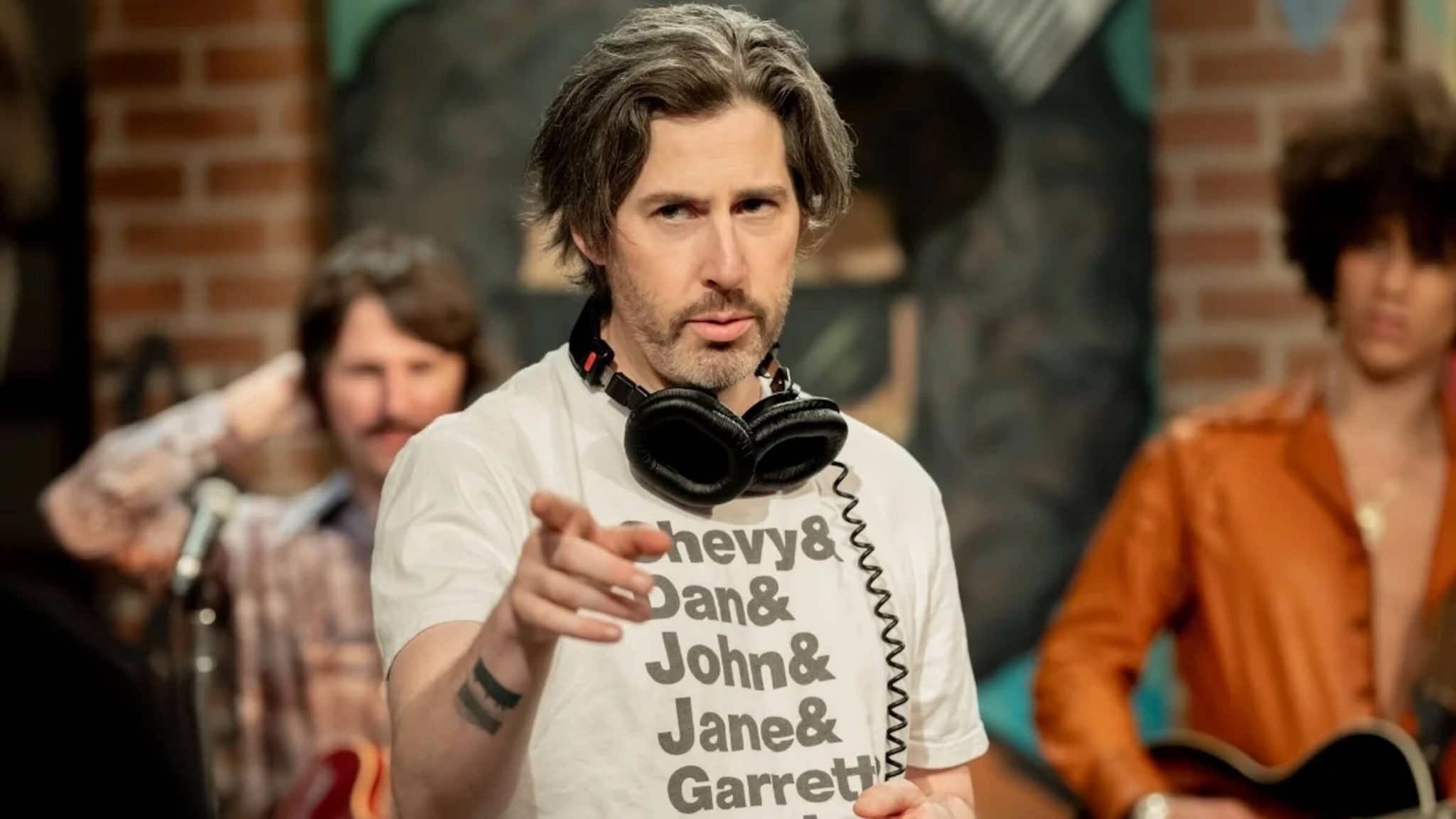How to Write (and Assess) Amazing Screenplay Coverage and Feedback

Screenplays don’t exist in a bubble. They’re fated to be poked, prodded, tweaked and deconstructed. Over and over again. The average produced script spends 5-7 years in development, and during that time it must survive rounds and rounds of script coverage, development notes, talent notes, production notes, and market research notes from an army of people. As a writer, it can be a challenging process to assimilate all of this feedback, and you’ll inevitably have to process and assimilate notes that you initially find mystifying.
It can be helpful in that situation to try to understand the notes from the perspective of the person who wrote them. Who knows, one day you may even find yourself crossing the aisle and working as a reader or story analyst yourself. If so, consider the below.
Read More: Explaining All the Different Types of Script Coverage
Writing amazing screenplay coverage and feedback is an art unto itself. It takes practice, discipline, and well thought out execution. It is far from just voicing an opinion on a screenplay — anyone can do that. But not everyone can write a detailed analysis of a cinematic blueprint for a film, showcasing a knowledge of the art, craft, and business of film and screenwriting as a whole.
I've been on both sides of the table. I've written studio coverage and I've also had my own scripts subjected to the process by studios, production companies, agencies, and management companies.
And what I've learned in that time on both sides of the table is that there is a clear distinction between good and bad coverage and feedback.
Whether you're looking to become a script reader for studios, production companies, management companies, and agencies, or are just hoping to learn the best ways to help your writing peers as you read their scripts, here are some key directives to becoming both an in-demand script reader and a peer to turn to for help figuring out what is right and what is wrong with your peer's script.
Be Objective
To give effective notes, you have to master the art of analyzing a screenplay from a somewhat objective perspective.
I say somewhat because there exists an unavoidable subjective angle that most professional script readers have to adhere to, due to the genre and subject preferences for whatever studio or production company they may be working for. Beyond that, readers have to learn to push aside their own likes and dislikes as much as they can and look at the scripts with a more objective perspective.
- Will this sell?
- Is my boss going to want to pump millions of dollars into this?
- Is the concept original enough or is it just another knockoff of Taken?
- Does it have strong leads that are going to draw in major talent?
- What's the demographic for this script?
- Is it contemporary and does it jive with the current industry?
These questions and so many more have to be taken into account.
The same can be said for critiquing screenplays in a peer-to-peer situation (writing groups) or through mentor position (teaching classes).
Put Your Own Style and Preferences Aside
Part of offering objective coverage and feedback is having the ability to disassociate your own work, your own visual styles, your own habits, and your own likes and dislikes, with whatever script you are reading. You need to look at the script from a purely objective standpoint.
If you hate romantic comedies and you're reviewing a romantic comedy script, you have to look beyond your subjective viewpoint of the genre and ask yourself questions like:
- Would this be a popular rom-com for those that love them?
- Hey, my wife loves these types of movies. Would she love it?
- Is this a concept within that genre that I haven't seen before?
- Are the characters in this rom-com original and new, or at the very least, do they offer a different approach or different angle on what we have seen before in these types of movies?
Then you can move into...
- Is the script well-written?
- Is it easy to follow the story and character arcs?
- Is the dialogue strong?
- Is there a true beginning, middle, and end or do they introduce a concept and seem to not know where to go with it?
Those are all objective questions for the most part.
Don't Just Look for What's Wrong in the Script
The biggest mistake people make while critiquing scripts is making a concerted effort to pick the script apart and point out everything — big and small — that is wrong with it. If that is all that your coverage or feedback entails, it's bad coverage and bad feedback — plain and simple.
This is especially prevalent in writing groups and with peer-to-peer or friend-to-friend feedback, but can also be found within studio and production company coverage. Remember that many script readers are struggling screenwriters themselves.
"The script did this wrong here, that wrong there, this character was written terribly, that plot point didn't make sense, etc."
The best way to critique a script is by finding not only what doesn't work, but especially what does work.
"The script struggles with formatting mistakes, which makes it difficult to read and follow. The writer needs to tighten up the dialogue and scene descriptions as well. The lead character doesn't have a great arc. However, this concept is amazing. The second lead character is written brilliantly. The pacing keeps you engaged throughout, full of many twists and turns that you don't see coming."
You see the difference? Instead of focusing on only the negative and what the script and the writer did wrong, you equalize everything by finding the strengths of the script as well. That's what real script readers have to do. That's the true measure of being a good story analyst — being able to analyze and showcase the strengths and weaknesses so the producers and development executives can ascertain whether or not the script itself needs to be optioned or purchased, and whether or not the writer should be considered for possible assignments.
And as a peer helping out another writer, you will offer them a more pleasant and constructively helpful experience in what is an otherwise nerve-wracking task to undertake, handing over your "baby" for judgement.
That said...
Avoid Overly Glowing Accolades
Now, let's keep it real here folks. A vast majority of screenplays out there outside — and inside — of the film industry are terrible. Some people just aren't ready or just don't understand how to concoct a compelling story with compelling characters — at least in cinematic fashion.
Conventional wisdom and experience within the film industry has proven that 95% of screenplays that go through the system are either horrible or just aren't ready. The same can be said for the writers that wrote them. Those are the Passes. 4% are average or just above average in regards to varied ratings of concept, story, characters, and overall delivery of each. Those are the Considers — the ones that showcase some noteworthy potential. Just 1% or less are truly outstanding. Those are obviously the Recommends. When a script reader recommends something, that's them basically saying, "Buy this script right now or hire this writer before somebody else does." Yet even those Recommends warrant some development notes and constructive critiques.
In short, no script is perfect.
Yet somehow, what often happens in writing groups and peer-to-peer critiques is the fellow writer often feels obligated to write nothing but glowing accolades and positives. This — much like writing nothing but negative feedback — is another example of bad feedback.
To be blunt, you have to avoid blowing smoke up someone's ass.
That doesn't help screenwriters. If anything, it destroys their chances of realizing their dreams because you didn't care for them enough to offer the truth, at least what you think that truth may be. And that also doesn't help the producer or development executive you work for. Just because you love a script doesn't mean you stop doing your job of being a story analyst or being a good writing peer. They need the big picture. Good, bad and everything in between.
I've read thousands of scripts from novice to working writers. And even the many bad ones had some elements I could point out that worked or at least were on the right track to working. Many were horrible and void of hope, I'll admit, but a majority of the time you can find both the good and the bad elements to share.
Bring Your Passion of Film to the Process
You have to bring your passion of film into play when critiquing scripts. The majority needs to be objective, but the subjective reaction needs to be present as well. Why? Because it'll help the writer in the long run, and it will enhance your studio coverage notes as well.
"I love prison movies. It's been so long since we've seen a good one and this script and its writer finally delivers something fresh and new."
Or on the flip side, in the context of peer-to-peer feedback:
"I hate romantic comedies and there's a reason for that. It's always the same formula. Guys meets girl. Guy gets girl. Guy loses girl. Guy gets girl back. That's what you wrote. Shake it up, man! You know what romantic comedy I did like? 500 Days of Summer. Why? Spoiler alert! The guy doesn't get the girl!"
If you inject that passion of film within your objective notes that point out what works and what doesn't work — and why — your coverage and feedback will shine. Keep in mind though, that this passion has to be professionally channeled...you don't ever want the coverage to be about you, because if you're writing notes for someone that doesn't know you personally, a bunch of first-person statements and informality will prove jarring and distract from the actual notes.
Know What You're Talking About
If you haven't read a lot of scripts, don't watch a lot of movies, and don't know the current film industry, you can do more harm than good. You're certainly not ready to be a script reader and you probably shouldn't be offering feedback to anyone.
Yes, an opinion is an opinion. A perspective is a perspective. However, screenplays are different beasts compared to short stories and novels. They are written for a very specific platform that requires multiple collaborations and also falls into many different genre demographics and business and marketing modules.
It's not enough to just say this is good and this is bad. Great screenplay coverage and great screenplay feedback needs to also have context. You need to be able to compare and contrast with the current and past markets. You need to be able to compare and contrast with current and past films, genres, subgenres, and their audiences. This in turn offers the writer receiving feedback some context and especially that producer or development executive. There is a reason Hollywood loves to pitch projects with phrases like "It's Jaws meets Alien." That creates an immediate visual context that they can apply to their decision.
Know how to read scripts by reading lots of them. Have the ability to be able to provide context by knowing and watching a lot of movies. And also know and understand the past and current trends of the industry.
Don't Be an Ass
Go into the process of writing coverage and feedback void of any ego and pessimism.
Sadly, when many writers are given a script with the writer, producer, or development executive saying "I need your feedback," they often feel it's their time to step up on that pedestal to enjoy a little power and grandeur — and they exploit it.
In short, don't be an ass. Reread any notes many times over before they are sent out. If they aren't offered in a positive light — with both the good and the bad — and are full of dictations as far as what direction you think the script should go and if they don't go that way, it'll fail? You're being an ass.
If you start quoting Robert McKee, William Goldman, Syd Field, and whoever else, basically trying to talk smart and position yourself on a higher plane of knowledge, well, you're being an ass. If your coverage or feedback consists of endless notions of structure and theory, pulled from guru books and "secret" formulas, you're being an ass.
That's not what coverage and feedback is about.
Focus on the Broad Strokes
Great notes found within coverage and feedback focus on the broad strokes of concept, character, story, plotting, themes, pacing, atmosphere, and tone, rather than grammar, punctuation, sentences, dialogue lines, and nitpicking specifics.
Coverage and feedback is not proofreading. You're not going through the script with a red marker and then transferring those marks into specific page-for-page and line-for-line notes--unless you're being contracted specifically to do in-the-margin notes or proofing.
Instead, you want to focus on the general elements of the script that either shine or don't shine for whatever reason. You can pinpoint specific examples to back up your reactions regarding the broad strokes — good and bad — but avoid wasting time focusing on each and every minute issue within the script.
Such details will overwhelm your peers and such details are insignificant to producers and development executives that have to go through dozens upon dozens of scripts each week. They will be able to grasp the broad strokes and generalizations to attain a better understanding of what is wrong and what is right with the script in question.
Think Cinematically
This is one element that many script readers fail to implement in their readings. Too many readers get caught up in plotting, arcs, and structure theory. For every example that they give of what a screenwriter and script did wrong — in their eyes — one could turn to any number of successful examples within successful films to prove otherwise. Why? Because screenplays are written for a visual medium and should not be judged or analyzed on the text and literary merits alone.
Movies like Star Wars, Independence Day, Kong: Skull Island, and The Fast and the Furious are not necessarily heralded for their amazing dialogue and bullet proof plots. They are cinematic treats. Great script readers need to have a keen third cinematic eye that can see what they are reading through their own mind's eye as if the film was already made and playing on a screen in their head. One could argue that the screenwriter is in charge of creating that experience for them, but there are many readers out there that are more concerned about the literary perspective of the script, rather than the cinematic perspective that the possible eventual film will be told in.
There has to be a balance of that, sure, but sometimes a great script really just needs to be a great, cinematic, and thrilling ride where you accept the rules that are given within the script and enjoy the cinematic experience of what unfolds.
So, in short...
- Point out what doesn't work and what does
- Make sure you know what you're talking about in the first place
- Keep an objective perspective while still allowing your subjective passion for film to be present
- Don't bring in any ego to the process
- You're not there to proofread, instead, you're there to give an overview
- Think cinematically
Follow those general directives and you'll be a script reader worth hiring and a great screenwriting peer to turn to in a time of need. You’ll also be a better writer—one who understands the reader mentality, and who is better equipped to process notes and feedback, because you’ll know what goes into creating them.
Guest blogger Ken Miyamoto has worked in the film industry for nearly two decades, most notably as a studio liaison for Sony Studios and then as a script reader and story analyst for Sony Pictures.
He has many studio meetings under his belt as a produced screenwriter, meeting with the likes of Sony, Dreamworks, Universal, Disney, Warner Brothers, as well as many production and management companies. He has had a previous development deal with Lionsgate, as well as two writing assignments with Larry Levinson Productions, including the produced miniseries Blackout, starring Anne Heche, Sean Patrick Flanery, Billy Zane, James Brolin, Haylie Duff, Brian Bloom, Eric La Salle, and Bruce Boxleitner. Follow Ken on Twitter @KenMovies
Tags
Get Our Screenwriting Newsletter!
Get weekly writing inspiration delivered to your inbox - including industry news, popular articles, and more!



























